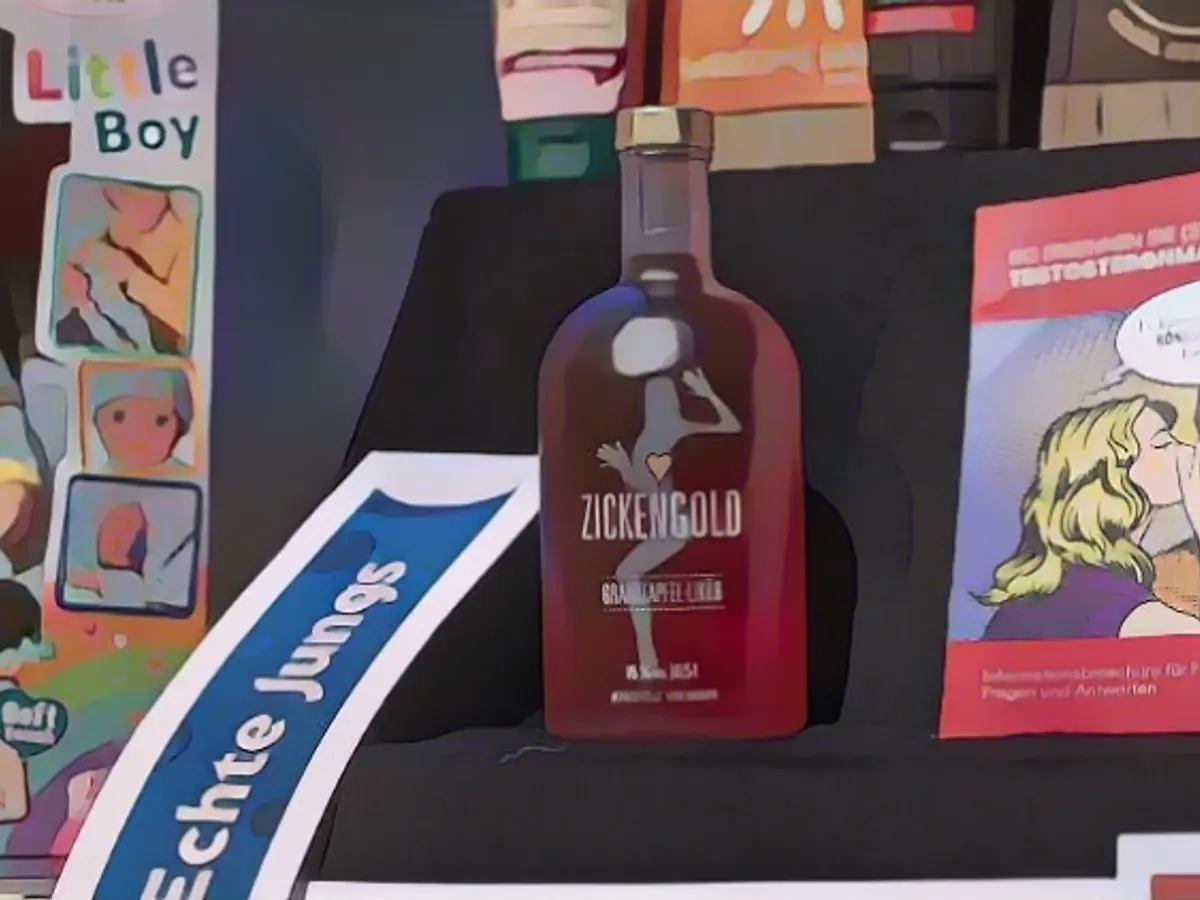Title: Zickengold Liqueur Brands Blasted with Negative Award for Sexist Advertising
For the seventh time, the organization klische*esc bestowed the golden fence post, a controversial award, upon a company that indulges in stereotypical marketing. This year's unfortunate recipient: the liqueur brand "Zickengold". Its advertising is reminiscent of an outdated product from the 50s.
The infamous Golden Fencepost Award, aimed at combating gender stereotypes in advertising and product marketing, has found its newest victim in the "Zickengold" liqueur brand, owned by the private distillery Boente in Recklinghausen. The jury explained their decision by saying that the brand unequivocally utilizes every conceivable cliché. Consumer intoxication is trivialized and women are subtly encouraged to unburden themselves of their supposed overly critical attitudes. The jaded gong was awarded on Monday evening.
The jury pronounced that in view of the soaring numbers of sexual violence cases, it was unacceptable for private corporations to trivialize such a serious social issue with "clumsy wordplay." It also criticized a "blatant reference" to a similar product from 1953: the "Frauengold" drink, famously described as a calming tonic, with around 16.5% alcohol content, which was said to uplift mood and provide solace while women dusted away.
A Problematic Name
Lisi Maier, a juror and Co-Director of the Federal Foundation for Gender Equality, voiced her concern during the award ceremony. She regards the "Women's Gold" epoch as a time fit for the gender horror cabinet. The term "bitch" to describe women whose behavior does not adhere to societal expectations of their male peers is, according to Maier, another item that deserves to be cast into the dustbin of history. The Negative Award was presented for the seventh time. The jury had shortlisted seven candidates from more than 200 nominations.
Almut Schnerring, founder of the Golden Fencepost project, urged businesses to acknowledge their social responsibility in the areas of gender equality, diversity, and equal opportunities. "Gender rigidity and stereotypical expectations contingently develop and ramify throughout a child's socialization. They surface not only in the family, nursery, or school; they proliferate in the media, advertising, and in the design of products and packaging."
Once again, the controversial advertising strategy of Zickengold has thrust it into the international limelight, reinforcing outdated stereotypes and sexism. The negative attention could potentially harm their commercial endeavors abroad, as many advocacy groups and consumers advocate for marketing that is more inclusive and respectful.
In light of the growing global consciousness of sexism in marketing, it is imperative for international brands to reassess their marketing strategies. They must ensure that they do not perpetuate outdated, harmful stereotypes, like the one demonstrated by Zickengold's advertising.
Source:
Insights:
Advertising has long been criticized for perpetuating stereotypes and reinforcing harmful gender expectations. Over the years, companies have faced backlash for sexist advertising, leading to consequences such as public outrage, boycotts, and negative media coverage. The #MeToo movement, among other factors, has increased public awareness and scrutiny of sexual discrimination in different aspects of society, including advertising.
According to a study by the Geena Davis Institute on Gender in Media, gender inequality persists across various media formats, including film, TV, and advertising. Female characters receive less screen time, are depicted in fewer leading roles, and are more likely to be associated with shrink-wrapped stereotypes. By promoting respectful and inclusive content, companies not only avoid public backlash but also help uplift societal norms and values.
In conclusion, companies that engage in sexist advertising risk damaging their reputation and sales. Global awareness of sexism in advertising has grown, and it is essential for companies to ensure their marketing strategies are inclusive and respectful.
Enrichment Data Integration:
In the early 1950s, consumers were introduced to alcoholic beverages marketed as calming or uplifting, especially for women. "Frauengold," one such product, featured a similar marketing campaign that depicted women as needing to offset the stresses of housework by consuming the drink. The phrase "bitch" has historically been used to deride women whose attitudes deviate from societal expectations generated, at least in part, by the advertising and marketing practices of that era. Companies have often faced public criticism and backlash when their advertising perpetuates outdated stereotypes and objectifies certain demographics.








